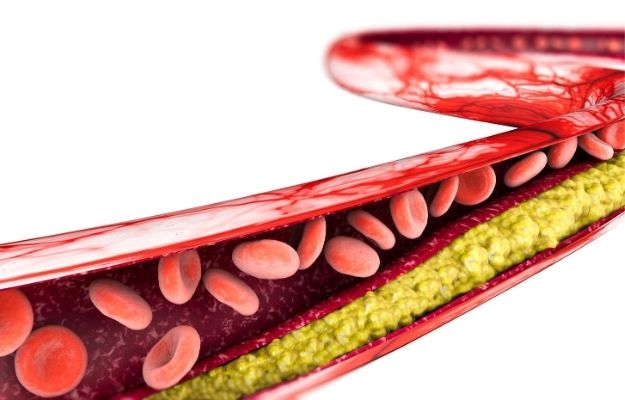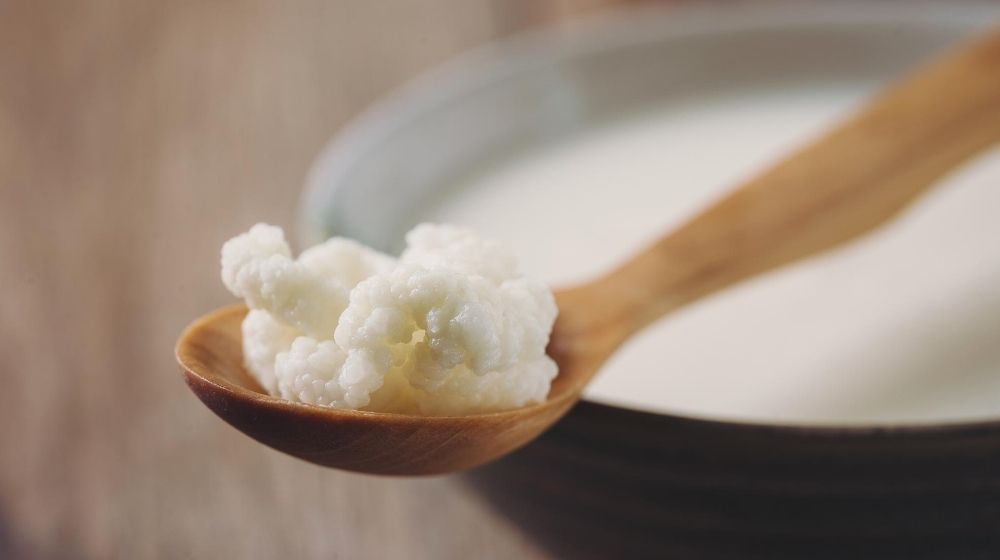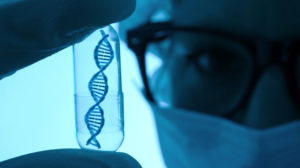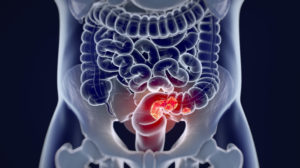A new study shows the promising effects of kefir peptides on atherosclerosis. Read on to learn all about it.
RELATED: New Natural Anti-Aging Peptide Discovered by AI
In this Article:
- Atherosclerosis: What Is It and What Are Its Effects?
- Current Treatment Protocol for Atherosclerosis
- Kefir Peptides: What Is It and What Are Its Health Benefits?
- Testing the Effects of Kefir Peptides on Atherosclerosis
- Key Findings of the Effects of Kefir Peptides on Atherosclerosis
- Considerations and Implications of Findings
Kefir Peptides: A Possible New Preventive Therapy Against Atherosclerosis
Atherosclerosis: What Is It and What Are Its Effects?

Atherosclerosis is a condition where blood vessels are compromised because they become thick and stiff. In severe cases, it can hamper blood flow and lead to a variety of cardiovascular diseases (CVDs).
Healthy blood vessels are elastic and flexible. They need to be that way so that blood can easily circulate and deliver nutrients and oxygen to different parts of your body.
Over time, high levels of the following factors can contribute to atherosclerosis:
- Low-density lipoprotein (LDL) cholesterol
- Vascular reactive oxygen species (ROS) generation
- Inflammation
Researchers have identified inflammatory cells that contribute to the progression of atherosclerosis, such as lymphocytes, neutrophils, and macrophages. Among these cells, though, there’s a greater interest in macrophages.
Not only are macrophages associated with the progression of the conditions, but they were also found inside atherosclerotic blood vessels. These inflammatory cells help develop the plaque, which makes blood vessels thick and stiff.
On top of that, they also regulate the production of ROS as a response to LDL oxidation. Other studies show that they may also contribute to thrombus formation.
According to the World Health Organization, CVDs are the leading cause of death worldwide. Approximately 17.9 million people each year die due to a CVD. This alarming statistic motivates scientists to look for ways to prevent further and treat CVDs.
Current Treatment Protocol for Atherosclerosis
Individuals who are at risk for atherosclerosis are usually prescribed aspirin or statin. Aspirin helps prevent the formation of vasoconstrictors that can lead to thrombosis.
Aspirin’s antithrombotic potency comes with a few side effects, though. These include hypertension, renal toxicity, gastrointestinal toxicity, extracranial hemorrhages, and intracranial hemorrhages.
There are also severe side effects associated with taking statins such as statin-associated muscle symptoms and an increased risk of CDVs in the future. Given these side effects, there is a need to find other ways to prevent atherosclerosis.
Kefir Peptides: What Is It and What Are Its Health Benefits?
Kefir grains come from the Caucasian mountains. These grains can make a variety of products, but it’s most popular product is a fermented milk drink.
Here are some of the health benefits kefir products offer:
- Hyperlipidemia prevention
- Gastrointestinal disease attenuation
- Allergy and asthma suppression
- Helicobacter pylori therapeutic improvement
- Inhibits tumor progression
- Enhancing bone density
These health benefits suggest that kefir has the following biological effects:
- Anti-bacterial
- Antioxidant
- Anti-tumor
- Immunomodulatory effects
Several animal studies further showcase the positive impact of kefir on different diseases. One study shows that it can help lower cholesterol and blood pressure in stroke-prone rats.
Another study also shows that kefiran treatment can reduce lung inflammation in asthma-induced rats. It also helped prevent fatty liver disease by modulating inflammation and relevant signaling pathways.
These initial findings suggest that kefir peptides may be useful in treating or preventing atherosclerosis, so a group of scientists set out to test this. They recently published their results in Nature’s Scientific Reports.
RELATED: GLP-1: A Peptide That Curbs Cravings and Promotes Weightloss?
Testing the Effects of Kefir Peptides on Atherosclerosis
A group of researchers tested the effects of kefir peptides on atherosclerosis. They induced atherosclerosis in rats by combining the ApoE-deficient gene knockout model and a high-fat diet.
The mice in the study had similar body weights. The researchers randomly divided them into the following groups:
- Control group – mice that were given standard chow diet
- Mock group – mice that were given a high-fat diet
- Low-dose kefir peptide intake group (KPs-L) – mice that were given a high-fat diet and 100 mg/kg dose of kefir peptides powder
- High-dose kefir peptide intake group (KPs-H) – mice that were given a high-fat diet and 400 mg/kg dose of kefir peptides powder
After 12 weeks, the researchers collected heart, aorta, blood, and other tissue samples from the mice to determine the effects of kefir peptide.
Key Findings of the Effects of Kefir Peptides on Atherosclerosis
Here are some of the key findings from the experiment:
- Kefir peptides help lower body weight. KPs-L and KPs-H groups experienced a dose-dependent reduction in body weight compared to the mock group. KPs-L mice weighed 9.8% less than the mock group, while KPs-H mice weighed 14.6% less than the mock group.
- Kefir peptides help improve lipid profiles. There was a dose-dependent upregulation of high-density lipoproteins (HDL) in KP groups compared to the mock group (40% higher in KPs-L and 92% higher in KPs-H). LDL levels were also 60% lower in both the KP groups compared to the mock group.
- Kefir peptides help inhibit the structural formation of atherosclerosis. KP groups had less lipid disposition in aortic roots, less atherosclerotic lesions, and thinner plaque deposits than the mice in the mock group. Among all of the groups, the mice in KPs-H had the least lipid disposition, atherosclerotic lesions, and thinnest plaque deposits.
- Kefir peptides help protect against endothelial dysfunction. There’s a dose-dependent decrease in dysfunction of serum markers in the KP groups. There was a 34% decrease in the KPs-L group and a 67% decrease in the KPs-H group.
- Kefir peptides help reduce oxidative stress. There was a dose-dependent increase in nitric oxide production, a decrease in ROS activity, and a reduction in the oxidized-LDL in the KP groups.
- Kefir peptides help lower macrophage accumulation. There was 76% less macrophage accumulation in the KPs-L mice and 86% less in the KPs-H mice. There was also a dose-dependent decrease of proinflammatory signaling in the KP groups.
- Kefir peptides help inhibit endothelial cell activation. In the KP groups, there was evidence of endothelial cell activation inhibitory effects in the heart’s insert and lower chamber. In atherosclerosis, there’s chronic activation of endothelial cells, which can lead to lipid build-up.
The experiment’s overall results were promising, but it’s essential to understand the limitations of the study.
Considerations and Implications of Findings
The results indicate that oral administration of kefir peptides can help improve atherosclerosis in mice. But it’s important to note that the development of atherosclerosis in humans can be more complicated.
It’ll take more time and research before these results can be replicated in humans. These results are still promising because it potentially offers a different route to preventing atherosclerosis and cardiovascular diseases.
What are your thoughts on these new findings? Share them with us in the comments section below.
Source:
Up Next:





